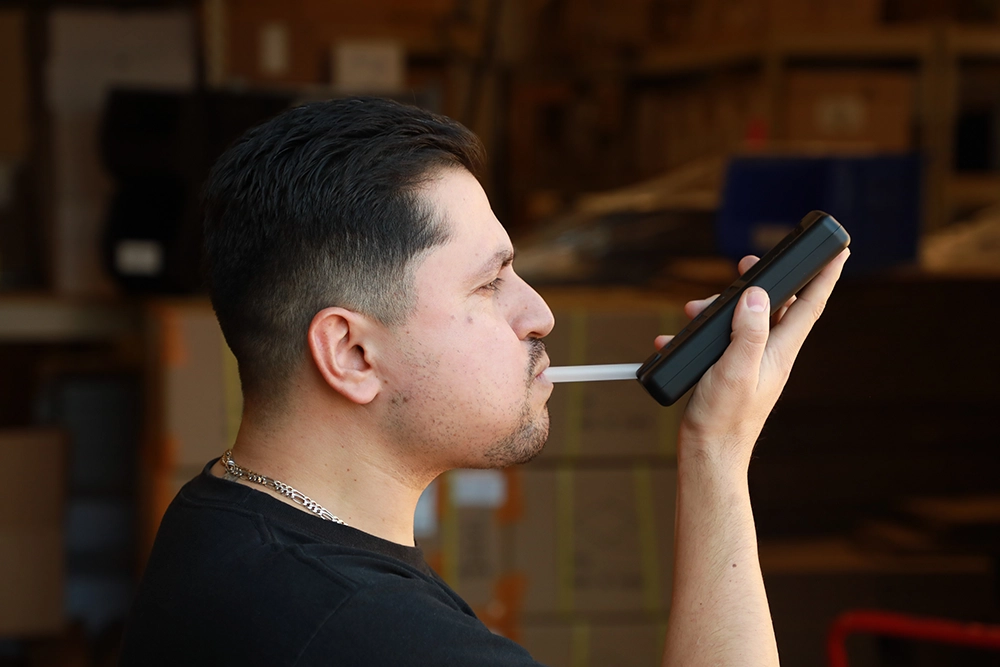
Breath Test: supporting pre-proceedings intervention
By Ellie Rees, Marketing Communications Manager
Building a case
Since the relaunch of the Public Law Outline, family law practitioners are under increasing pressure to reduce the number of court hearings and meet a case resolution by the statutory 26 weeks deadline. Therefore, it’s crucial for drug and alcohol testing to take place at the pre-proceedings stage so a full body of evidence can be submitted ahead of the hearing and minimise time in court. Monitoring alcohol abstinence over a set period of time is one route that can help in this area as the analysis will show a clear trend in either declining use or none at all and this type of evidence can be life-changing in a client’s case.
There are many various forms of alcohol testing, with two of the most popular being hair strand testing and blood alcohol testing. However, if used in isolation, these tests cannot give a strong indication of abstinence. In fact, Marlowe (2012) states in a study published by the NDCI that no single approach will be effective with alcohol-using clients and the best approach is to work with monitoring tools that are based on the client’s risks and needs.
One such abstinence monitoring tool is the Breath Test from Lextox, which is a non-invasive, discreet and easy-to-use alcohol breath test, best used as part of an ongoing monitoring programme.
Supporting abstinence
The Breath Test device has long been used in the US probation system, particularly as part of sobriety programmes to reduce reoffending. The North Dakota Attorney General 24/7 Sobriety Program was put in place in 2010 and monitored those with alcohol related offences through twice-a-day breath tests in conjunction with an alcohol monitoring bracelet. When the programme was analysed in 2015, 98% of clients successfully completed the programme with no violations or drinking events, highlighting the accountability effects of the device and how much data can be recorded and submitted as evidence.
In regards to donor compliance, the Breath Test has a variety of features that mean it integrates into the donor’s life, as well as keeping them accountable when a test is required. Enhanced facial recognition means only the donor can complete the alcohol breath test and the robust device is portable so it easily fits into the donor’s day-to-day activities. Additionally, a monitoring prorgramme can only be deemed successful if it has enough data, therefore, to encourage the donor to keep to their test schedule, the device will send out a missed test notification if required.

A bespoke programme for your client
The benefits of real time abstinence monitoring to a case are not only in the analysis results but also in helping intervention at the pre-proceedings stage. With more courts recommending a mediation approach to family law, monitoring technologies such as Breath Test, and Lextox’s recently launched DrugPatch programme, have a pivotal role to play in this process.
Creating an abstinence monitoring programme has to be suitable for both the client and their case, which is why our client managers are well placed to advise and support the creation of a bespoke testing programme that suits all parties.
Click here to take the first step in creating a bespoke programme.
By Ellie Rees
Marketing Communications Manager
Ellie joined Lextox in 2023 with a strong background in public sector communications, having worked on campaigns for Welsh Government, Devon County Council and the wellness to work sector. She is passionate about the work that Lextox does and creating content that breaks down a complex process into easy-to-understand formats for clients. Ellie graduated from Goldsmiths, University of London with a BA in Media and Communications and has written for several publications including The Student Guide, The Everyday Magazine and House 21.

Published 14/01/2025. All information correct at time of publication.




